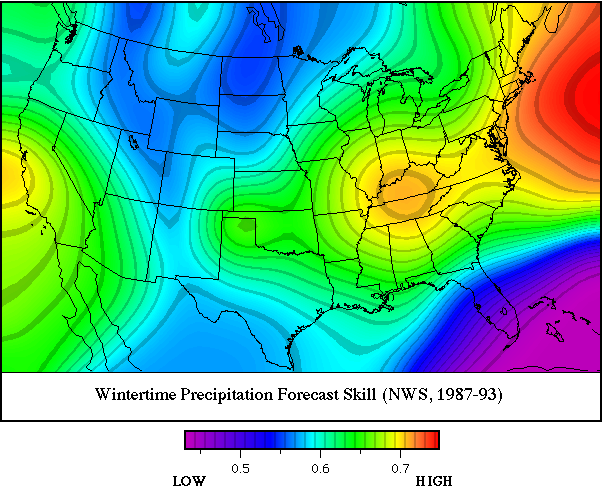
Evolved Program Analytical Forecasts
OTT1239
Applications
This method has been used successfully for work in short-term forecasting. It may be used for any weather variable, such as temperature, precipitation, wave height, wind velocity, or severe storms.
Target Problems
Preparations for a disruptive event is often expensive and companies are better positioned to take appropriate action when the probability of such an event is known. The computation time for the forecasts is very short; decisions can be made in real-time.
Key Benefits
- Fast – Enables decisions to be made in real-time
- Improved Accuracy – Forecasts are more accurate than industry benchmarks
- Efficient – Easily manages large amounts of data
- Less labor intensive – Requires the supervision of only one skilled forecaster
- Reliable – Produces consistent results

Technology
Inventors at the University of Wisconsin-Milwaukee have developed the Evolved Program Analytical Forecasts. This method is an automated process that uses any large data set as an input, and algorithms evolve by a method called Simulated Evolution giving the probabilities of different outcomes based on the information desired. This new method also accounts for the spatial dimension of the data. The approach is based upon predator-prey ecosystem dynamics, in which the predators fill the role of regulators of the population that carries the forecast information. A forecast solution carrier is produced by using steady population, which drives progress towards improved forecast solutions. An automated process which needs the supervision of only one trained forecaster brings down costs and makes short-term forecasts accessible to a greater number of businesses and organizations.
Intellectual Property
This is a copyrighted work.
Inventor
Dr. Paul Roebber, PhD – Professor, University of Wisconsin-Milwaukee

